The Best Foods to Help Fight Inflammation

Inflammation can result from chronic illness, pain and other health problems. It can come on due to a plethora of different triggers, such as stress and lack of sleep, but diet can also play a key role in how inflamed the tissues and joints of your body become.
When fighting pain and inflammation, reaching for an ibuprofen might be your go-to, but as the old adage goes, “you are what you eat.” If you eat the right foods, you may be able to ward off some inflammation for the long haul.
Miso
With a double dose of anti-inflammatory properties, miso is a great choice if you want to help your body battle chronic inflammation. The Japanese soup paste is made from fermented soybeans and is generally used to create broths and sauces.
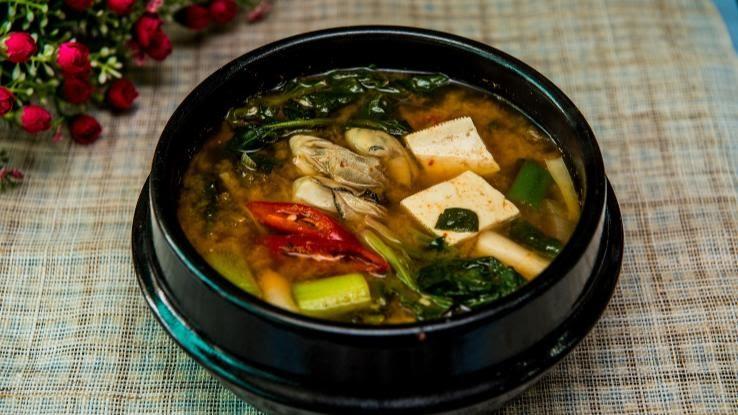
The fermentation process involved in making miso gives it probiotic compounds that can actually turn into anti-inflammatory compounds. The soy in miso is also high in substances that mimic the same properties that isoflavones/estrogen compounds have, which can reduce certain enzymes responsible for inflammation. Miso can do wonders for your body when you eat it regularly.
Raw Honey
Honey is one of those foods that gives a sweet flavor without the added problems that granulated sugar can cause when you eat larger amounts of it. Raw honey contains both digestion-friendly enzymes and proteolytic enzymes to help your body’s immune system function well.
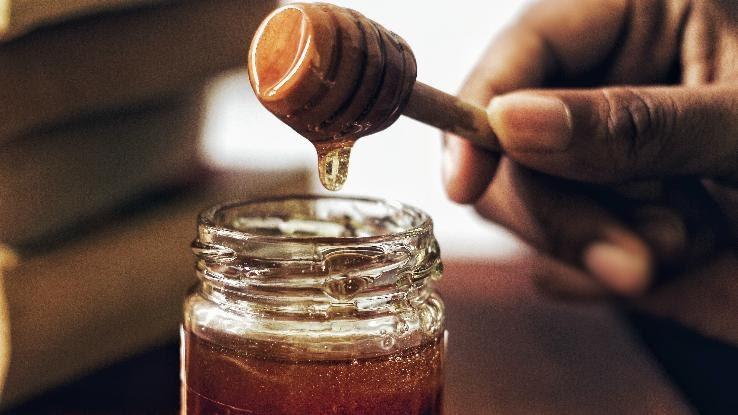
Proteolytic enzymes contribute to the reduction of inflammation by helping to control the process in your body that causes inflammation in the first place. These enzymes clear out your immune system by breaking down certain proteins. Raw honey also contains other anti-inflammatories such as polyphenols, antioxidants, vitamins and carotenoids.
Coconut Oil
Coconut oil has been hailed as a cure-all. You can use it as a skin lotion, a hair mask, a weight-loss aid and even a face cream. It’s a jack-of-all-trades when it comes to self-care and improved health.

It’s also widely used in cooking, which is how you can use it to fight inflammation. Coconut oil contains healthy fats that, when digested, assist in the battle against acute inflammation. It doesn’t fight against serious systemic inflammation, though.
Bone Broth
Health fads come and go, but one thing remains the same — some of those “fad” foods actually work in the long run. The current bone broth craze is a very popular trend. Bone broth is made by boiling soup bones over an extended period of time.

This process leads to the collagen in the bones breaking down into the broth. The anti-inflammatory ingredient in bone broth is glucosamine, which has also been used in supplement form for other types of pain, like joint pain. The glucosamine aids in inflammation reduction because it targets a biomarker that causes flare-ups of joint swelling.
Rosemary
Rosemary is an herb that has been used in cooking for centuries, but it doesn’t just offer a great flavor to chicken, vegetables or other foods on your table. Rosemary contains a high level of antioxidants that can help your body ward off painful inflammation.
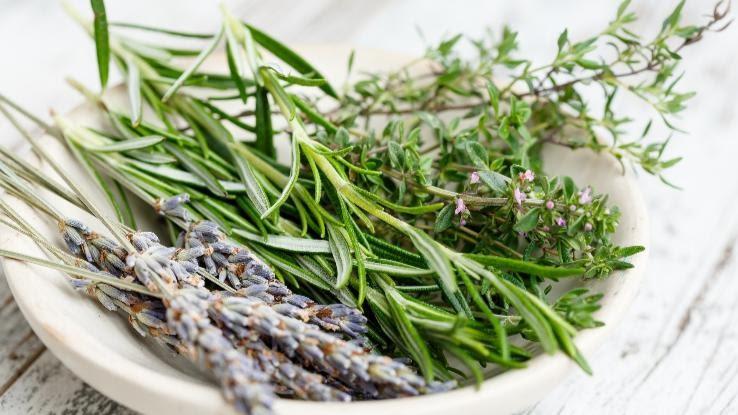
The delicious herb also has high levels of carnosic acid and carnosol, both of which act as inflammation inhibitors by reducing the production of cytokines, which are proteins that can suppress your immune system. The two polyphenolic compounds have been confirmed through studies to be very helpful in fighting inflammation.
Tuna
Eating a diet rich in fish can offer a large number of health benefits. Omega-3 fatty acids are found in fish and can promote improved brain health. Many companies have bottled this substance in the form of gel-cap supplements because of how helpful the vitamin is overall.
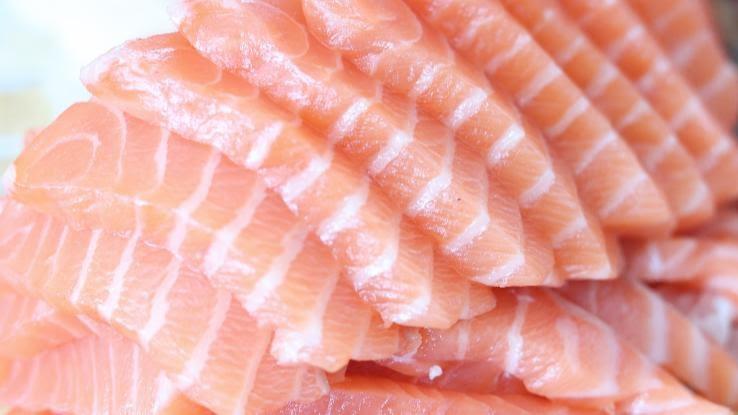
Tuna is jam-packed with omega-3s, but that’s not the only reason it’s a good thing to eat for fighting inflammation. It’s also full of docosahexaenoic acid (DHA), which is one of the best forms of omega-3 when it comes to warding off chronic inflammation.
Nuts
Another great source of omega-3 fatty acids is nuts. Whether you love walnuts, almonds, cashews, hazelnuts or any other type of nut, they’re rich in alpha-Linolenic acid (ALA). ALA isn’t as potent as the DHA and eicosapentaenoic acid (EPA) in fish, but it does do the job.
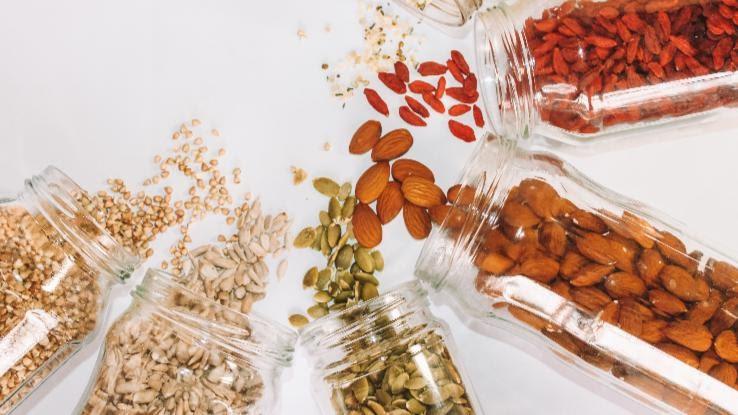
Nuts are also full of vitamins and nutrients that can help stave off inflammation, such as vitamin E (found mostly in almonds) and oleic acid (mostly in hazelnuts). The combination of the vitamins and omega-3s helps your cells avoid oxidative damage, which often leads to more inflammation.
Apples
Apples are one of those types of foods that belong in just about every diet because of how many health benefits they offer. Apples contain prebiotics that encourage the growth of bifidobacteria and lactobacillus, both of which are good types of stomach bacteria that aid in the proper function of the digestive system.
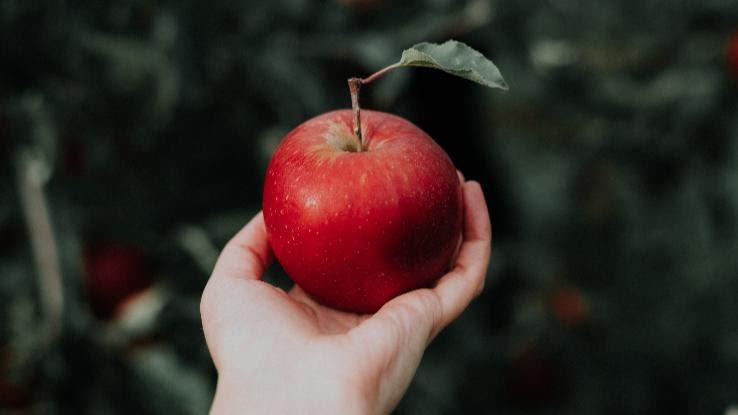
Don’t forget to eat the peels, either; they have quercetin. Quercetin is an antioxidant that helps your body with endurance and reduces inflammation all in one shot. There might be some truth to that “an apple a day keeps the doctor away” saying after all.
Yogurt
Gut health may be the holy grail of health because of how much it impacts the rest of your body — gut bacteria are your immune system, after all. Your gut does all the work when breaking down food to get the essential vitamins where they need to be, too.
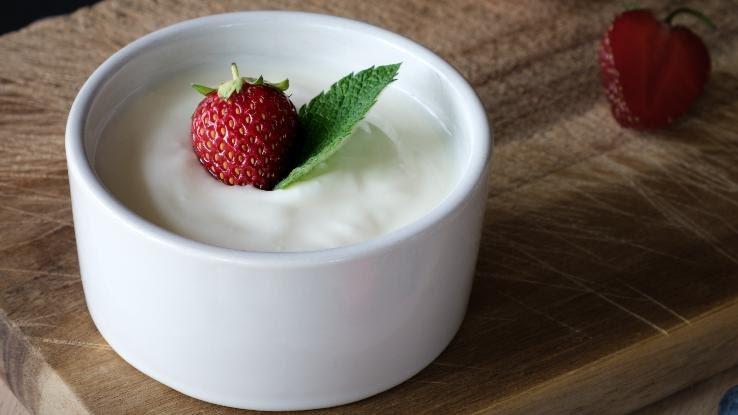
Yogurt contains high levels of cultured probiotics that assist your gut in recolonizing good bacteria. When the good bacteria are at optimal levels, the foods you eat can better reduce inflammation because your body absorbs their nutrients properly.
Avocado
Avocado is one of those healthy fats that everyone and their mother is talking about. The pear-shaped fruit is delicious with almost any meal, and it contains a cocktail of different minerals and vitamins, all of which can be incredibly beneficial when it comes to overall health.
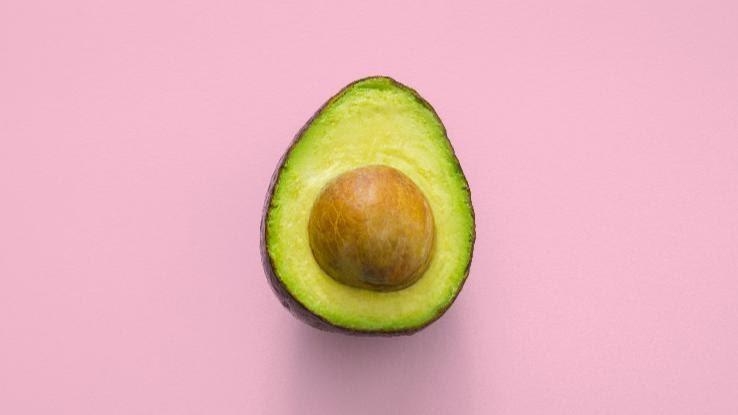
Avocados are high in vitamin E, vitamin B6, omega-3, folate, niacin, magnesium and potassium. These vitamins and minerals can reduce inflammation because they help your body’s processes run smoothly, and when your body works properly, it can ward off chronic inflammation with ease.
Oysters
Oysters might be an acquired taste, but this delicacy can actually be extremely good for you if you’re trying to fight off inflammation. Oysters contain copper, zinc and manganese, all of which are great helpers in keeping your body’s systems running well.

These three minerals aid in the anti-inflammatory response by acting as antioxidants, too. They shut off inflammation by deactivating certain enzymes that damage cells and allow free radicals to stick around. Oysters also contain a ton of omega-3s, which are helpful in the fight against inflammation.
Garlic
Garlic is one of those foods that falls into two categories — either you absolutely love it or you absolutely hate it. One thing about garlic is for certain though: It’s a health benefactor when it comes to warding off inflammation.
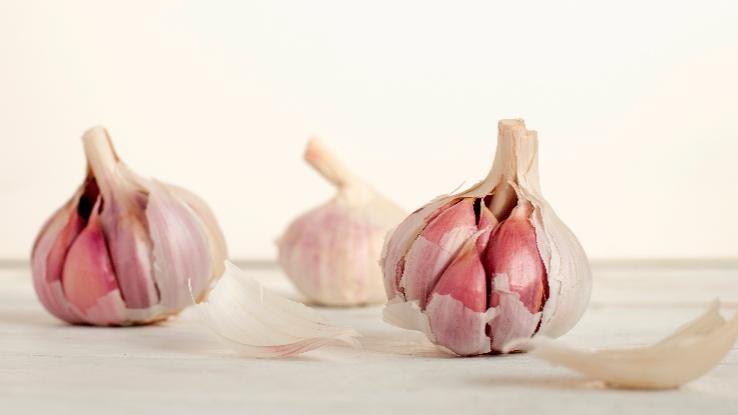
Garlic forms a compound called allicin when you crush or chop it. This compound can block certain enzymes that help bacteria and infections thrive in your body. The bioavailable compounds in garlic are absorbed well when you take them in capsule form, but crushing it up and cooking it works just as well.
Eggs
Eggs are packed with vitamins and nutrients, including protein, vitamin D, vitamin B6, vitamin B12, selenium, iron, copper and zinc. This makes them an epic staple food for your diet. It doesn’t hurt that there are tons of different ways to cook or incorporate them into meals.

The anti-inflammatory properties of vitamin D are the reason why eggs are so good at fighting off inflammation. Vitamin D may reduce certain markers that aid in the production of enzymes that cause inflammation. Be sure to eat the yolk, though; it’s the main source of vitamins and nutrients.
Whole Grains
Your body has many different genes that can either turn on or turn off inflammation markers. Whole grains such as brown rice, millet, amaranth and quinoa all contain fiber that encourages the production of butyrate, which targets the genes that lead to inflammation and turns them off.
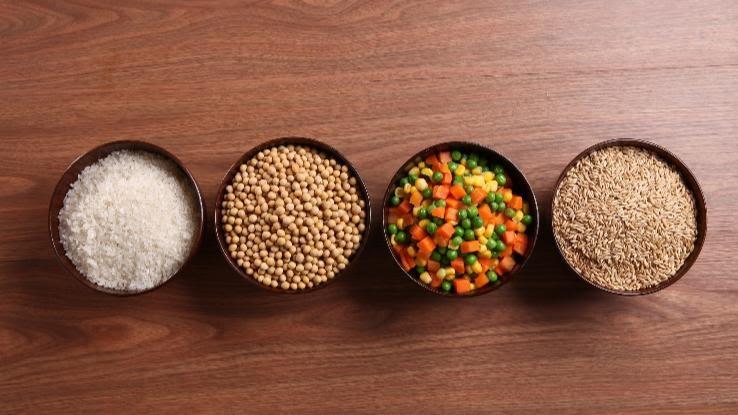
They are also very high sources of vitamin B and can impact the way your body produces the hormone homocysteine. The high fiber also keeps you feeling fuller longer, which could reduce your desire to snack on foods that cause inflammation.
Spinach
Spinach has been hailed as a superfood since way back in the days of Popeye the Sailor, and for very good reason. The leafy green vegetable is packed with vitamins C, E and K. These vitamins are great for limiting inflammation because they protect against cytokines.
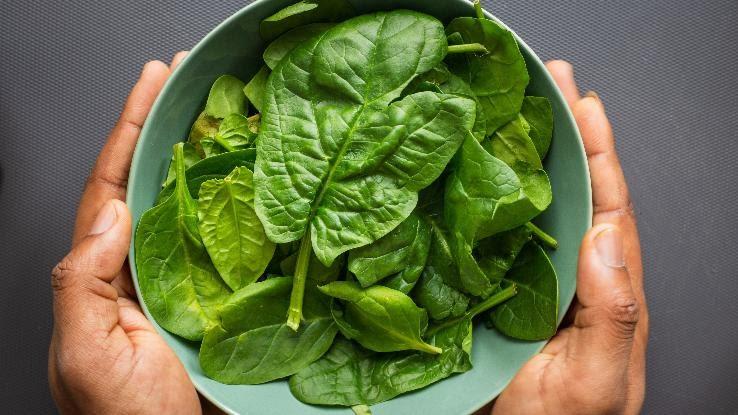
Vitamin E is especially helpful because it can actually reverse the inflammatory effects of adipokine compounds. Spinach is also rich in carotenoids, which are powerful antioxidants that contribute to overall health and reduce body-wide inflammation by enhancing your immune system.
Pineapple
Some foods that can aid in the fight against inflammation do so by acting as accomplices in the fight for the overall well-being of your body. They do this by reducing certain unpleasant symptoms that can lead to further inflammation.

One of those foods is pineapple. Pineapple is a fruit that’s rich in bromelain, an enzyme that acts as an antioxidant and as a symptom reliever for people suffering from chronic health issues. The bromelain stops the spread of certain metabolites that encourage inflammation to occur throughout your body.
Chia Seeds
Chia seeds are a superfood that you can use in just about anything. They’re tiny and don’t offer too much in the way of flavor, so you can sprinkle them in pasta, salads, smoothies and soups or even make them into a delicious overnight pudding.
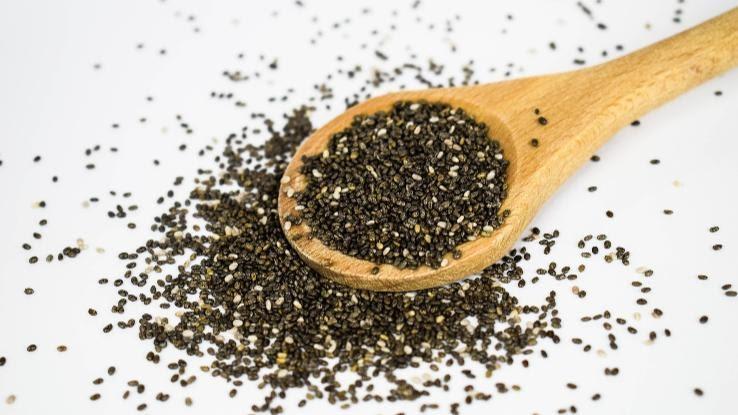
The health benefits of chia seeds come from their high levels of healthy fats, fiber and protein. They’ve been known to be huge contributors to overall health because they can help stabilize blood sugar levels, aid in weight loss and control your appetite. They fight inflammation specifically by reducing spikes in blood sugar levels, which can lead to inflammation.
Tomatoes
Tomatoes are one of those foods that are good in pretty much any lunch or dinner. From a sweet slice on a sandwich to a nice tomato and cucumber salad, the options are endless. They’re great helpers in the fight against inflammation because they contain a high level of the antioxidant lycopene.
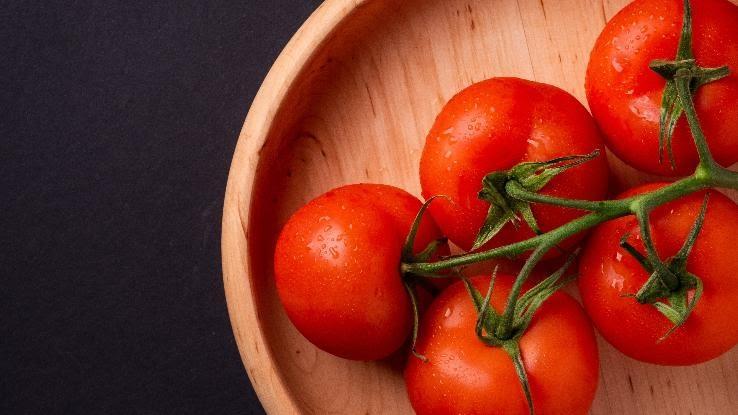
Lycopene contributes to overall brain health by reducing brain inflammation that could contribute to mental illnesses such as depression. Lycopene levels are also high in processed tomatoes, so it doesn’t matter what type you eat as long as you’re eating some form of them.
Extra Virgin Olive Oil
Extra virgin olive oil is an unrefined type of oil that contains oleocanthal. This compound is a direct fighter of inflammation because of its ability to reduce cell damage throughout your body. It works so well, in fact, that because of its phenolic properties, it can sometimes have the same effect as ibuprofen.
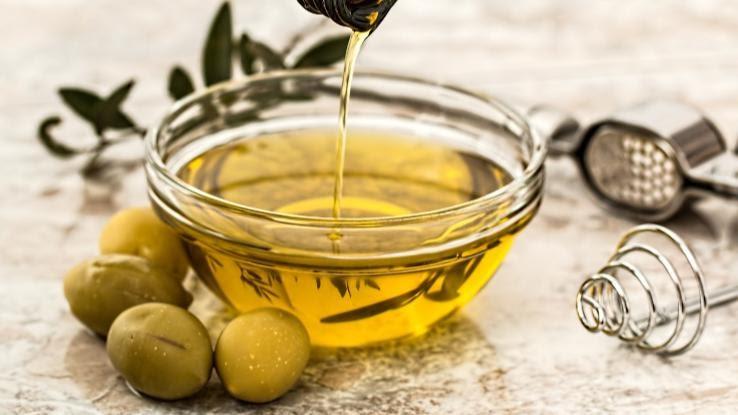
You can drizzle it on meat before cooking, mix it up with a salad for a nice light dressing or even use it to saute some vegetables. The options are endless, and your body will thank you for it.
Cherries
Cherries are another one of those superfoods that offer so many health benefits in a small, delicious and easy-to-eat package. They’re chock-full of anthocyanins, which are flavonoids that have extensive antioxidant properties. Anthocyanins also give cherries their dark red color.
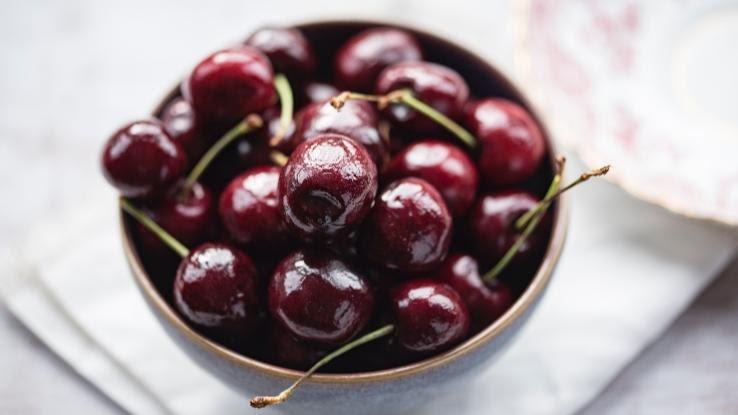
They’re full of vitamin A, potassium, calcium, folic acid and fiber — all of which contribute to your body’s overall health and the fight against inflammation. Eat them alone as a snack, put them in cereals or smoothies or even cook them as a delicious and healthy after-dinner dessert topping.
Broccoli
Broccoli is one of those staple vegetables that’s so versatile it’s hard not to incorporate it into your diet unless you absolutely hate the tree-shaped food. It offers great health benefits and is high in vitamin K.
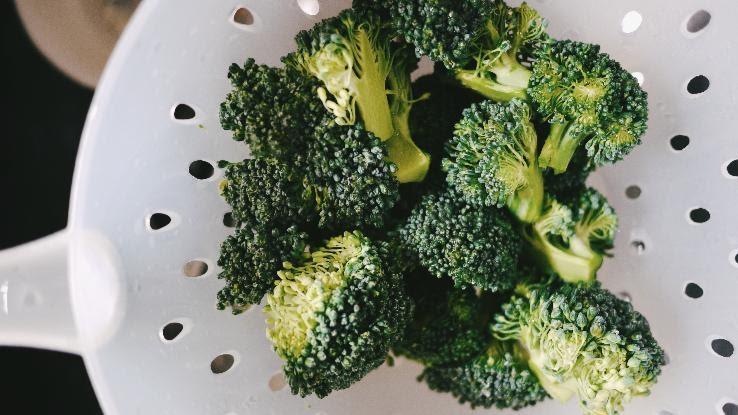
The most anti-inflammatory property of broccoli comes from its glucosinolate. The compound glucosinolate changes into another compound called I3C that affects your body’s ability to turn on pro-inflammatory markers. It does this all the way down to a cellular level, too, which is pretty impressive for such a simple veggie.
Beets
Beets have that flavor profile that requires you to really love them if you’re going to eat them. Their earthy yet sweet taste is great for mixing in with salads or roasting with other vegetables or meats. They also have a ton of great health benefits.
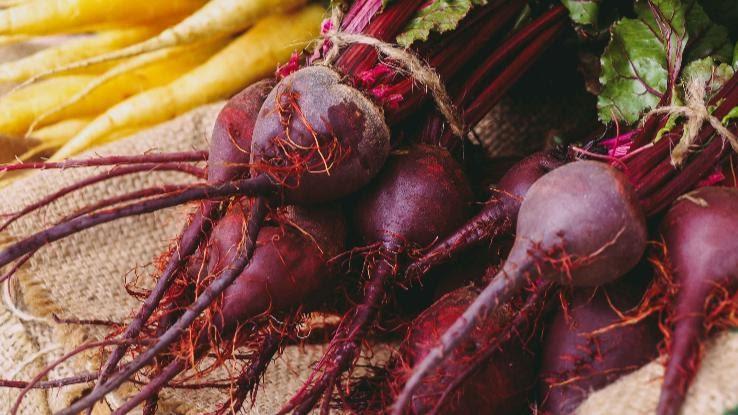
When it comes to fighting inflammation, beets have a few powerful antioxidants, including betaine. Betaine helps to speed up your metabolism so your body can digest and absorb nutrients better. It also helps with insulin resistance, warding off inflammation from all angles.
Turmeric
Turmeric isn’t just a delicious spice that gives your food that extra boost it needs to go from bland to delicious and colorful. It’s a powerful superfood, and many researchers have suggested that eating just a little bit of it a day can help ward off inflammation.
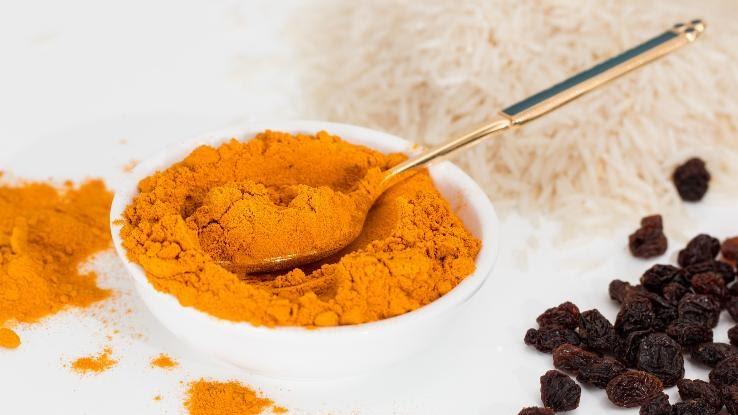
The active compound in turmeric is curcumin, a phenolic compound generally used in food coloring and even as dietary supplements. It plays a helpful role in your health by shutting down the COX-2 and 5-LOX enzymes in your body, both of which are directly related to widespread inflammation.
Red Bell Peppers
Bell peppers have long been hailed as a superfood, and for good reason. The vegetables are jam-packed with vitamins, minerals and antioxidants. Red bell peppers, though, are perhaps the leading contenders when it comes to providing the most health benefits all at once.
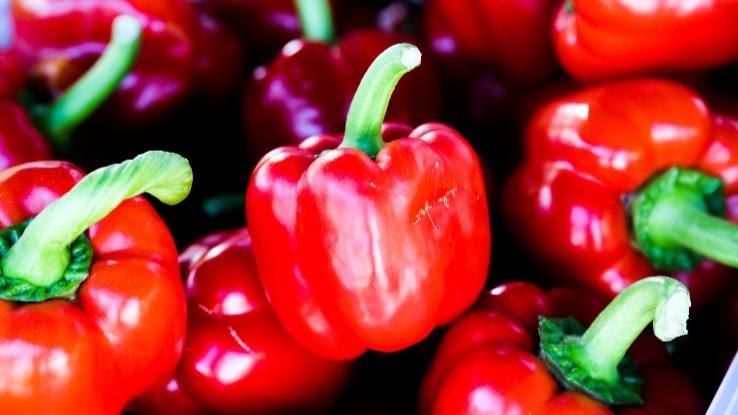
The red peppers have the most vitamin C, which acts as an anti-inflammatory by reducing biomarkers in the body that cause inflammation. They also have quercetin, luteolin and beta-carotene, which may fight off disease-causing inflammation and even cancer.
Wild Salmon
As you probably know by now, omega-3s are so good for your body. The healthy fats aid in the reduction of inflammation, and wild salmon is another great option when it comes to foods that are rich in healthy fatty acids.
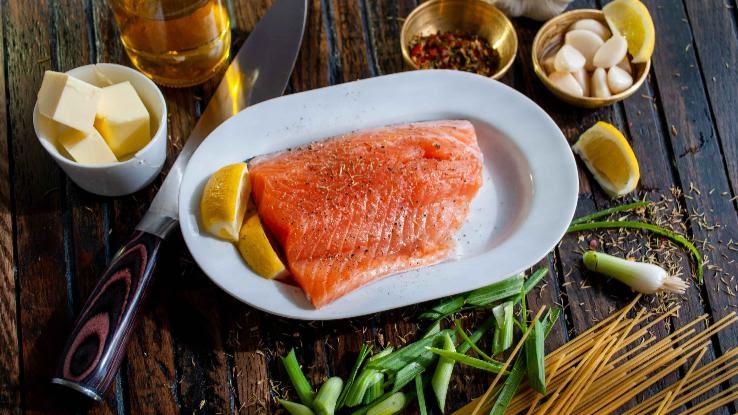
Wild salmon has EPA and DHA omega-3s that attack inflammation at the source. They do this by helping to increase the level of adiponectin in your body, thus helping your muscles use any carbs you eat for energy. This proper metabolic function can reduce inflammation.
Dark Chocolate
Chocolate might be seen as a guilty pleasure, but it’s actually a great source of antioxidants. Well, dark chocolate is, anyway. It’s made out of cacao, and that’s where the health benefits come from when it comes to this sweet treat.
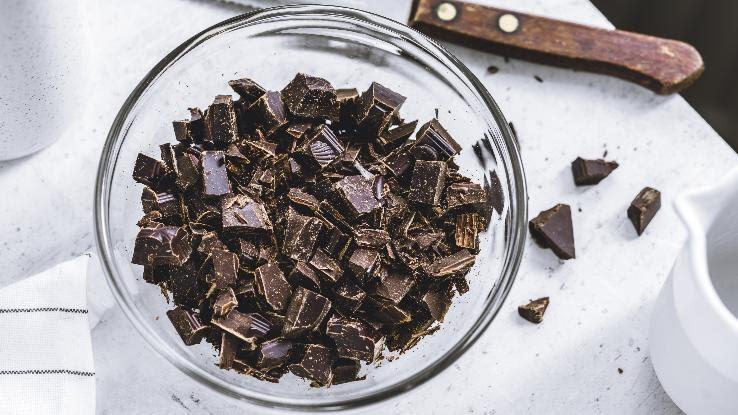
Dark chocolate isn’t just good for you because of the antioxidants. When it hits your stomach, the real work begins when your gut bacteria start to ferment the chocolate. This leads to the production of healthy compounds that can reduce inflammation throughout your body.
Green Tea
Green tea has been a staple in many weight-loss plans because of its ability to help people’s stomachs metabolize foods better. It also has appetite-suppressing properties. It’s an ancient aid for boosting overall health.
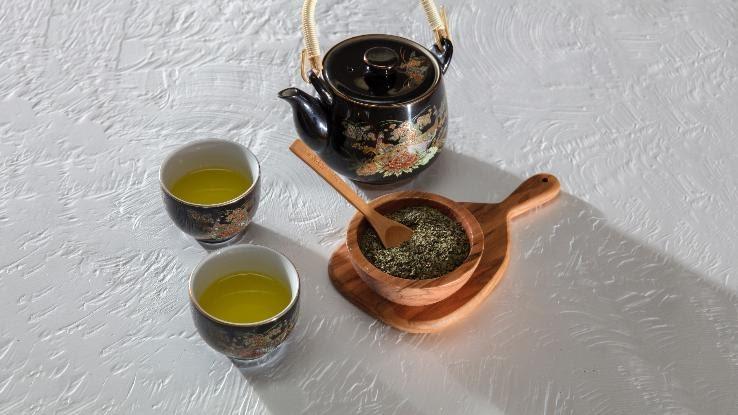
Green tea contains antioxidants called catechins, which are found in the leaves of the plant. The best part about green tea is that it’s one of the only foods in the world that contains epigallocatechin gallate (EGCG), a compound that combats inflammation at the source.
Ginger
Ginger has been used as an antinauseant for centuries because it’s natural and really works to combat symptoms of illness. Ginger contains several powerful antioxidants, anti-inflammatories and antibacterials, all of which owe their properties to gingerols.
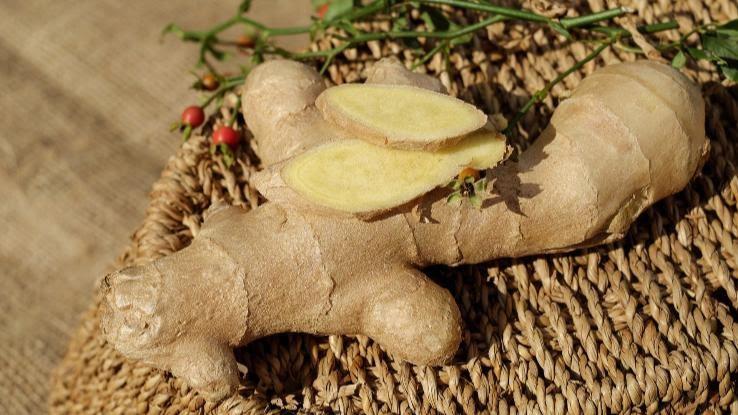
Gingerols are magic workers that can help your body block certain enzymes that cause inflammation to occur and then spread. Ginger is great in sauces, teas and desserts. It’s also been said that chewing ginger can help your body ward off illness because of how potent the antioxidants really are.
Raw Oats
Raw oats aren’t exactly an exciting meal, but that doesn’t take away any of the great health benefits that eating them regularly can have. They’re a type of resistant starch, which means that your body doesn’t fully digest them.
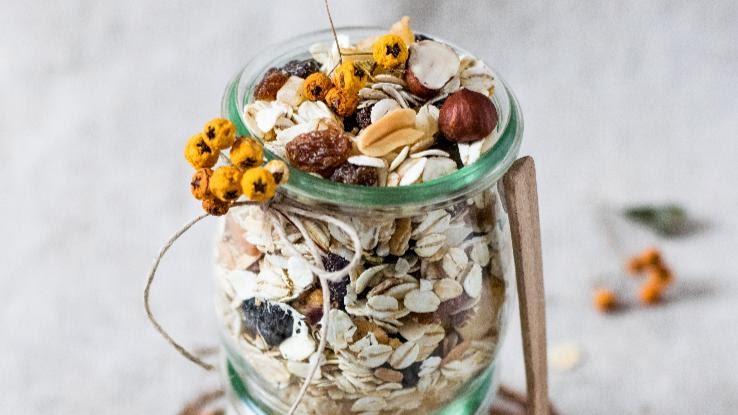
Because your stomach doesn’t digest the raw oats fully, they pass through and help out all your gut bacteria by feeding them instead of you. When the bacteria are full, a fat-oxidation process can occur, and in turn, inflammation is reduced. Raw oats can also help relieve bloat.
Blueberries
These little blue fruits are big helpers when it comes to fighting inflammation because they’re full of antioxidants. They contain high levels of flavonoids that contribute to the reduction of and protection against all types of inflammation in the body.

Their main sources of health-driven properties are the anthocyanins, which are able to go through your body and turn off certain genes that cause inflammation and problems with your immune system. They also have a ton of vitamin C, which doesn’t hurt in the fight against chronic pain and ailments.





